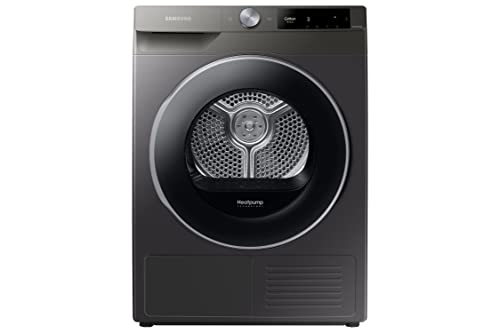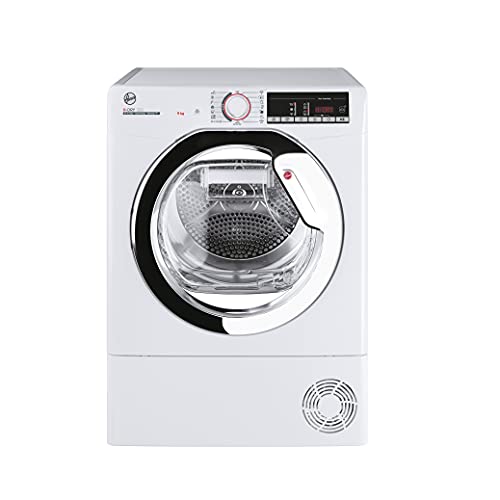10 Inspirational Graphics About Dryers Heat Pump
페이지 정보
작성자 Darla Lions 작성일24-03-02 04:25 조회7회 댓글0건관련링크
본문
 Why Buy a Dryer With a Heat Pump?
Why Buy a Dryer With a Heat Pump?The heat pump heat-pump tumble dryer functions similar to standard electric or gas dryers. They warm the air and then pump it back to the drum. The warm air isn't pushed into the vents, which could lead to problems like clogged filters for lint and energy waste.
 Since ventless heat pumps cool the air to eliminate moisture they can be placed wherever. Find out more about their other advantages.
Since ventless heat pumps cool the air to eliminate moisture they can be placed wherever. Find out more about their other advantages.Energy Efficiency
While traditional vented dryers use large amounts of energy to operate however, heat pump dryers consume just a tiny fraction of the energy. They don't need to generate heat like conventional dryers. Instead, they rely on an open loop refrigerant system that's similar to an air conditioner. The air that passes through the dryer's evaporator coil heats and absorbs moisture. The water dries into a tray which can be manually empty or connected to a drain pipe. The cooled air then circulates through the coils, causing the cycle.
According to Energy Star, heat pump dryers consume about two-thirds of the energy per load as traditional dryers. They do not require venting. This eliminates the possibility of lint accumulating in the vent and dryers heat pump decreases the chance of fire. Also, since they're not ventless they can be used in any room that is connected to an electrical outlet, which makes them ideal for apartments and other cramped spaces.
The energy efficiency of heat pump dryers can also translate to lower utility bills. This is particularly important in light of the rising cost for electricity. The dryers that use heat are generally more expensive upfront but they pay for themselves in two years due to their lower operating costs.
Electric heat pump dryers heat pump use less energy as well than condensing, non-heat pump dryers. Their cycles are longer than conventional dryers.
If you're serious about reducing energy use then a heat pump dryer is the way to go. It's the most efficient way to do laundry and is powered by the electricity generated by solar or other renewable sources. If you are on the path towards an all-electric home then the heat pumps dryer should be a part of it. That's because it can be powered by the same renewable energy source that powers your other appliances, like refrigerators and washers. It can help you reach your ambition of having a completely electric home by 2050.
Convenience
Many dryers equipped with heat pumps come with moisture sensors to help prevent drying too long and help save energy. Certain dryers heat pumps feature anti-wrinkle technologies and smart settings that are operated by smartphones. Certain models that are ENERGY STAR certified models can recycle the water used to eliminate humidity from the air during the drying process and save you money on disposal costs.
Heat pump dryers also provide more flexibility than vented or ducted clothes dryers as they do not require venting. They are able to be used in a variety different locations, including basements and attics. The only downside is that they take longer to dry laundry than conventional electric dryers because they don't require as much heat.
Rather than using hot air to dry clothes like gas and electric dryers, heat pumps dryers recycle the same air over and over again. A compressor presses a coolant in one set of coils to release heat. Then it flows through an expander valve before flowing into another coil set where it cools down and absorbs moisture. The process repeats repeatedly until the load is completely dry. This is much more efficient than traditional dryers, which waste energy by continuously heating the air to dry laundry.
The use of heat pump dryers may be expensive at first, but they are a green alternative. However, they will pay for themselves over time by reducing your utility costs. Many manufacturers offer rebates and incentives that can offset the initial costs of a clothes dryer with a heat pump.
Some dryers with heat pumps require a special drain hose to discard the water used to remove moisture from the air which can increase the overall price of the appliance. This isn't a major issue, however it could be a deciding factor for some consumers.
Heat pump dryers have many advantages that are worth considering. They are gentle on fabric which helps to prolong their lifespan and look good while doing it. They also cost less, cutting your energy bill by up to 28% compared with traditional dryers.
Durability
The idea behind these dryers is to cut down on energy consumption by reusing heat from the air They are also gentler on clothing and can aid in prolonging their life. They utilize the same method as vented dryers to wring water out of clothes, however they do not release humid air outside your home. They recycle air that has been chilled. They dry clothes faster than vented dryers due to the fact that they work at lower temperatures.
Since they don't require a vent and don't require a vent, these dryers can be installed in any room that has electricity and a water source. This makes them ideal for small homes, accessory dwelling units (e.g. an apartment over the garage), and additions. Some models are small enough to fit into tight spaces, and a lot can be stacked with washers to provide more flexibility. Ventless heat pump dryers with a larger capacity, which can be awarded an ENERGY STAR certification, are more powerful.
The dryers spin clothes in a heated drum, just as traditional vented dryers. As the clothes spin the hot drum heats up and pulls out moisture. The water is then stored in a separate tank, drain hose, or draining hose, which must be manually or automatically drained. Certain dryers require a tank to be drained every few cycles. Others have a self-draining tank which requires less maintenance.
Heat pump dryers are more complex and require more maintenance than vented dryers. They also have higher repair costs. These dryers are nevertheless worth the investment if are looking to save money as well as lower your utility costs.
The most important factor to consider when deciding whether to buy a heat pump dryer is your routine for washing and budget. If you frequently wash laundry and prefer to have it dry quickly and efficiently, a vented dryer could be the best option for you. On the other the other hand, if you're searching for savings over the long term and aren't averse to 2.5-hour drying times, a heat pump dryer is a great option. They can save you as much as $2,600 per year in energy costs, and they last twice longer than traditional vented models.
Noise
They are generally quieter than traditional dryers however, the level of noise can vary among brands and models. Knowing the methods used to measure noise levels and comparing them can help consumers choose the best model for their requirements. If noise is a major concern, it can be helpful to plan to use the dryer during times when the household's activity and sleep patterns are likely to be less disturbed. Also, placing the dryer in an area that is quiet and separating it from the floor using mats or rubber pads will help to reduce unwanted noise.
The grinding or squeaking sounds could be a sign that the drum of the dryer is overloaded and unable to turn. To avoid this, be sure to follow the manufacturer's recommendations for load capacity and avoid overfilling the dryer. The ability to balance larger items like comforters or blankets with smaller ones will improve performance and reduce squeaking noises.
Some heat pump dryers produce an audible gurgling sound when they are in the drying process, which is normal and a sign that the dryer is operating according to its intended. If the sound gets more intense or continues to occur it could be a sign that the lint filter and dryer vent are blocked and need to be cleaned.
It is crucial to regularly clean the dryer lint filter and vent to keep them clear of obstructions and ensure the proper operation of your heat pump dryer. This will prevent excessive noises during drying and prolong the life of the appliance.
Some heat pump dryers claim that they run on standard 120 volt, 15 amp electrical circuits. This is a great option for older homes with fewer power outlets. However, this can be an untrue claim in advertising because the majority of electric dryers require 220-volt 30-amp circuits in order to function properly. A heat pump dryer running on a standard circuit will increase the chance of fire and electric shock. Therefore, it is recommended to hire an electrician who is certified to install a heat pump dryer into an existing home.
댓글목록
등록된 댓글이 없습니다.

